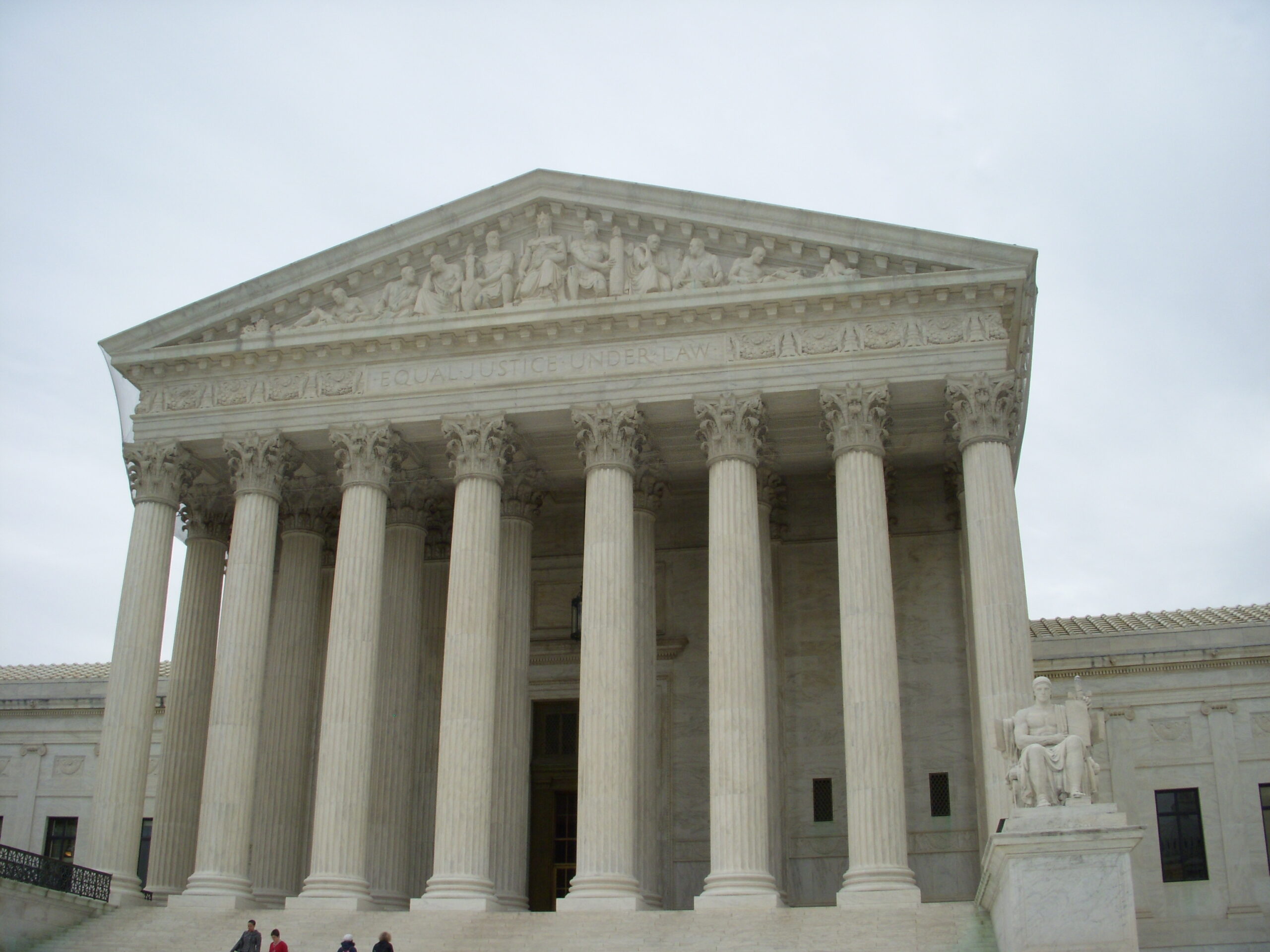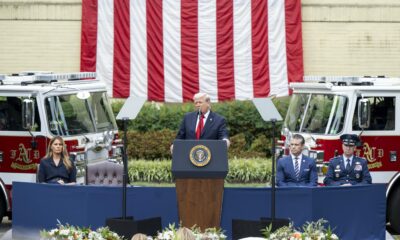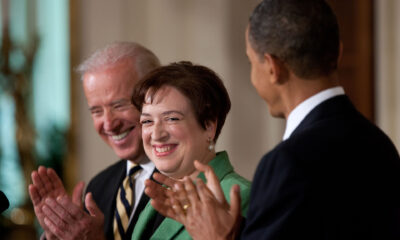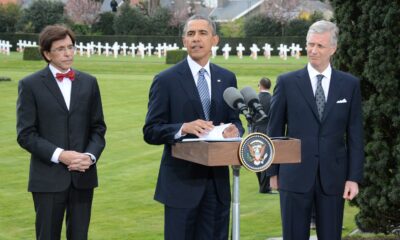First Amendment
Social Media Case Reinvigorates Debate Over Internet Fairness
The case of Netchoice v. Paxton, set for oral argument before SCOTUS, will break ground on the fairness of social-media terms of service.

The plaintiff’s brief in the major Supreme Court free speech case Netchoice v. Paxton has now been filed. If wisdom or fairness carry the day, the large social media sites will lose their appeal and will not be able to block the American public’s full access to news and opinions in future election seasons.
In the Paxton case, the Fifth U.S. Circuit Court of Appeals upheld a Texas law that would prevent the largest social media sites such as X, YouTube, and Facebook from censoring messages that would otherwise be legal and acceptable in any normal public forum. The law essentially requires social media to allow access to all political messages and viewpoints the way a telephone company must carry all messages and viewpoints.
Netchoice, as the trade association for the sites, has gone to the Supreme Court to overturn the Texas statute and regain the unbridled power of censorship for the social media’s private sector owners. Texas will be filing its own reply in January 2024 and the Court will decide the case soon after.
The Supreme Court, on January 5, 2024, set the case for oral argument on February 26, 2024. – Ed.
There is an important historical context for the Texas law. Ahead of the 2020 presidential election, major sites, such as Twitter (now “X”), effectively censored the New York Post scoops on Hunter Biden’s scandalous laptop. Sites also stifled a good deal of public policy debate about COVID and blocked current and future communication by President Trump. These actions may have had a material impact on a close election.
Additionally, even as social media sites have become more clearly aggressive in their use of censorship, they also have become more and more dominant as the source of political news and messaging in our society.
As Justice Anthony Kennedy wrote in the case of Packingham v. North Carolina,
While in the past there may have been difficulty in identifying the most important places (in a spatial sense) for the exchange of views, today the answer is clear. It is cyberspace – the “vast democratic forums of the Internet” in general, and social media in particular. Seven in ten American adults use at least one Internet social networking service… Facebook has 1.79 billion active users. This is about three times the population of North America.
Kennedy wrote the Packingham opinion in 2017, and the media sites have grown much larger and more central to political debate since then. Facebook, for example, now has nearly 3 billion monthly active users, and all social media now has some 4.9 billion users worldwide. In today’s world, being blocked from social media means being shut out of full and fair participation in political speech and debate.
In the opening of their legal brief, the social media sites categorically claim “there is no American tradition of forcing private parties to disseminate viewpoints against their will.” This claim is clearly wrong.
There is a clear American tradition of requiring private parties to allow full and fair dissemination of all political opinions in at least two contexts. First, for “common carriers” such as telephone companies that carry messages for the public at large. Second, for Marsh v. Alabama-style private spaces, such as company towns, that are so dominant in place for public speech that they have assumed the functional equivalent of the “public square” itself.
The well-reasoned Fifth Circuit opinion upholding the Texas law tied its decision to this line of reasoning. The judges explained how the original privately owned telegraph companies were ultimately regulated as common carriers to prevent them from refusing to carry news favorable to labor unions or their other political and economic opponents.
The plaintiff’s brief filed on behalf of the social media sites gives the “common carrier” and “public square” points short shrift. In their 54-page brief, the plaintiffs devote just two pages to the common carrier issue and only one paragraph to the “public square” question.
In seeking to avoid common carrier status, the plaintiffs assert, “Covered websites … are not common carriers. They do not hold themselves out as affording neutral, indiscriminate access to their platform without any editorial filtering.”
But this is disingenuous because, in reality, they do. The simple fact is that no business could ever gain billions of users unless they provided, in essence, neutral and indiscriminate access. Joining Facebook or X is not like joining the Harvard Club. It is not like getting an opinion piece accepted by the New York Times editorial page.
If you look at the signup apps of major sites today and seek to log in, the key message is “simple and easy.” A user inserts his email and then is free to post; the sites are just as indiscriminately open to the public as signing up for telephone service and making a call. Aunt Millie can then post endless photos or comments with no editorial oversight at all. Indeed, every speaker is herself her own Benjamin Franklin – her own newspaper publisher, with her own voice – and the social media sites in the normal course are merely a passive transmitter to enable the sending of billions and billions of other people’s messages – just like a phone company, with no editorial opinions whatsoever.
Nor does having editorial rules stop an organization from being a common carrier. There are editorial rules that prevent messages even in public mail or on privately-owned common carrier telephone companies. Child pornography is barred, for example.
Finally, abusing the obligations of a common carrier does not free the bad actor from being a common carrier and having those obligations. Imagine if a railroad company said, “We are not common carriers serving all the public because we have a policy to exclude Black people.” In that case, the exclusion is the abuse. Or consider if, in its monopoly heyday, Bell Telephone had said, “We are not a common carrier because we have an editorial policy, too. We don’t let Democrats make phone calls during election season.”
The plaintiff makes even weaker arguments – or almost no argument – against the Marsh v. Alabama “public square” requirements. In their one paragraph on the issue, they cite the Forbes case, in which public television stations were not required to include every self-proclaimed political candidate in a political debate. But Justice Kennedy and the high court reached this conclusion, in part, because the forced inclusion could have created such a “cacophony” that it might make such debates impractical and so actually have the effect of reducing speech. Further, the Court did require public television to be “viewpoint neutral,” which is the exact aim of the Texas law being challenged.
The plaintiffs also cite the Pruneyard cases, which held that shopping malls are not required to host free speech and protests like a “public square.” In part, this is because the protests can disrupt the retail operations that are at the heart of the mall. As a messaging site, however, speech is the essence of social media, and social media sites are incredibly more central to the nation’s political speech and debate than any shopping mall can ever be.
Ultimately, the regulation of social media as a common carrier or as a “public square” will be a balance test. It will be a measure of whether these sites have grown to be so universal, so open to the public, and so central to political speech and fair elections that their private owners must give up some freedom to block other people’s speech at will.
As Justice Hugo Black wrote in Marsh about the company town:
Ownership does not always mean absolute dominion. The more an owner, for his advantage, opens up his property for use by the public in general, the more do his rights become circumscribed by the statutory and constitutional rights of those who use it. Thus, the owners of privately held bridges, ferries, turnpikes and railroads may not operate them as freely as a farmer does his farm … When we balance the Constitutional rights of owners of property against those of the people to enjoy freedom of press and religion, as we must here, we remain mindful of the fact that the latter occupy a preferred position.
It is one thing to uphold the right of the sites to limit spam advertisements (as the courts have previously and properly done). It is quite a different thing to allow these same sites that have grown larger and larger, more and more dominant, more and more central to political speech to block the most important political news and opinion debates of each election season.
In the sovereign opinion of the people of Texas, a balance point has been passed. Whether it is news of the Biden laptop; COVID policy debates; prior restraint on speech from specific political figures – all of this speech which would clearly have been legal in Central Park or any other public forum, the voters want to hear all political views neutrally. Just as they require privately-owned phone companies to carry all political views equally or require privately-owned trains to carry passengers of all political views equally. The Texas law carefully leaves full rights for the sites to block any speech that is violent or illegal and seeks no monetary damages, just improved access. The law should be upheld.
More generally, the whole regulation of social media (and the reform of federal section 230, which protects sites from responsibility for the messages they carry) should be reformed as follows:
Social media should be considered as having “two speeds” with different rules for each speed.
Speed One is passive transmission, where the site merely allows a user to put up a post and allows readers to access that post if they specifically choose to; that is, with no amplification of the post or insertion of it into people’s feeds who never sought it out. This passive hosting speed is no different from being the manager of Central Park; speakers can discuss any legal form of speech among themselves, and the manager has no liability or responsibility for the message.
The commonsense policy would be as follows: “If it can be said in Central Park or any other public square, it can be said on our site, and readers who want to hear the speaker can specifically seek them out.” Advertisers can choose to stay off of these unregulated “free speech zones” as they choose. True illegality can be blocked and reported to the authorities like any other crime.
Speed Two is active amplification, where the site takes a message and itself decides to rebroadcast or promote it into the feeds of those who never asked for it. Here, the site is making an editorial decision, and here, it should have all the protections and liabilities of other speakers. If, for example, the site maliciously takes a known libel and sends it to a billion listeners, it is responsible for that action. But by the same token, under the First Amendment, the government cannot block the site from amplifying or republishing the messages it chooses.
A “common carrier/public square” balance test, with the two speeds recognized, would bring sense and logic to the regulation of social media going forward.
This article was originally published by RealClearPolitics and made available via RealClearWire.
K.S. Bruce writes the “In This Corner” opinion column for RealClearLife.
-

 Accountability3 days ago
Accountability3 days agoWaste of the Day: Principal Bought Lobster with School Funds
-

 Executive1 day ago
Executive1 day agoHow Relaxed COVID-Era Rules Fueled Minnesota’s Biggest Scam
-

 Civilization10 hours ago
Civilization10 hours agoWhy Europe Shouldn’t Be Upset at Trump’s Venezuelan Actions
-

 Constitution2 days ago
Constitution2 days agoTrump, Canada, and the Constitutional Problem Beneath the Bridge
-

 Civilization1 day ago
Civilization1 day agoThe End of Purple States and Competitive Districts
-

 Christianity Today9 hours ago
Christianity Today9 hours agoSurprising Revival: Gen Z Men & Highly Educated Lead Return to Religion
-

 Civilization5 days ago
Civilization5 days agoThe devil is in the details
-

 Executive22 hours ago
Executive22 hours agoWaste of the Day: Can You Hear Me Now?













